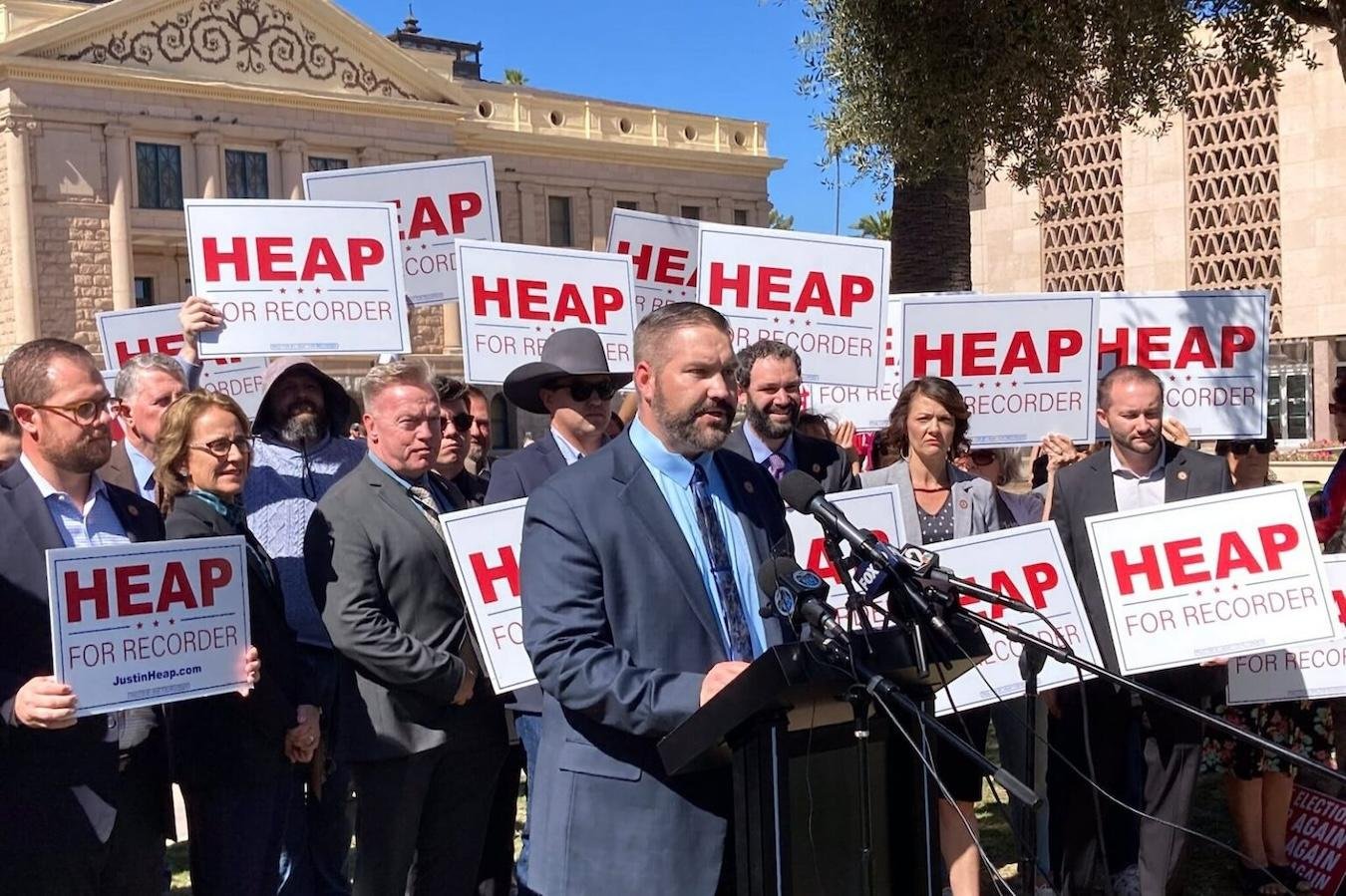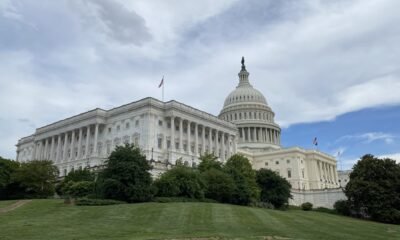arizona
GOP Lawmakers React to Election Warnings After Veteran’s Stark Message

Maricopa County Recorder Justin Heap recently addressed legislative Republicans, highlighting the challenges rural counties face regarding election reform proposals. He emphasized that these counties often lack the staff and resources necessary to implement new measures. For the first time in years, lawmakers took these concerns seriously, acknowledging the validity of Heap’s statements.
Heap’s testimony during the inaugural meeting of the House Ad Hoc Committee on Election Integrity comes just nine days after he took office. His remarks echoed long-standing issues raised by the Arizona Association of Counties, which had often been dismissed by lawmakers. Representative Alexander Kolodin remarked on this shift, relating past experiences of skepticism toward rural county claims.
Heap, a former state representative and a member of the Legislature’s far-right Freedom Caucus, recalled his time in the legislature where requests from the counties were frequently brushed aside. “It was frustrating to see the consistent refusal of the Association of Counties to support even minimal legislative requests,” Heap told the committee. He attributed his change in perspective to discussions he had with county recorders statewide after assuming his new role.
“Legislators often draft laws with only Maricopa and Pima counties in mind,” Heap noted. He pointed out that smaller counties, which possess different administrative capabilities, must still comply with the same laws, regardless of their unique constraints.
Heap’s reflections align with the insights of Jen Marson, executive director of the Arizona Association of Counties. Recognizing the varying needs across Arizona’s 15 counties, she has long advocated for legislation that considers the limitations of less populated areas. Maricopa County, with approximately 4.5 million residents, starkly contrasts smaller counties like Greenlee, which has only about 9,300 residents.
The disparity in resources is palpable. Heap highlighted that while urban counties can allocate more personnel to manage election laws, many rural counties operate with minimal staff. The Apache County Recorder’s Office, for instance, consists of just four employees. Heap noted, “Pushback from smaller counties arises not from disagreements, but from concerns over resource limitations.”
This sentiment was echoed by Kolodin, who expressed newfound appreciation for Heap’s insights. He acknowledged that Heap’s direct experiences made his arguments resonate more effectively than similar points made by Marson in the past.
Marson had previously detailed the difficulties less populated counties face, such as the limited staffing in Greenlee County, which has only three individuals in its Elections Department. “Legislation must be practical for all counties,” she stated, reinforcing the need for lawmakers to adopt a flexible approach that accommodates various administrative capacities.
Kolodin observed that Heap’s background and previous legislative experiences gave his comments weight, as he became a familiar and trusted figure among lawmakers. “Clear communication can resolve many political obstacles,” Kolodin remarked, signaling a potential turning point in the collaboration between the legislature and county officials.


















